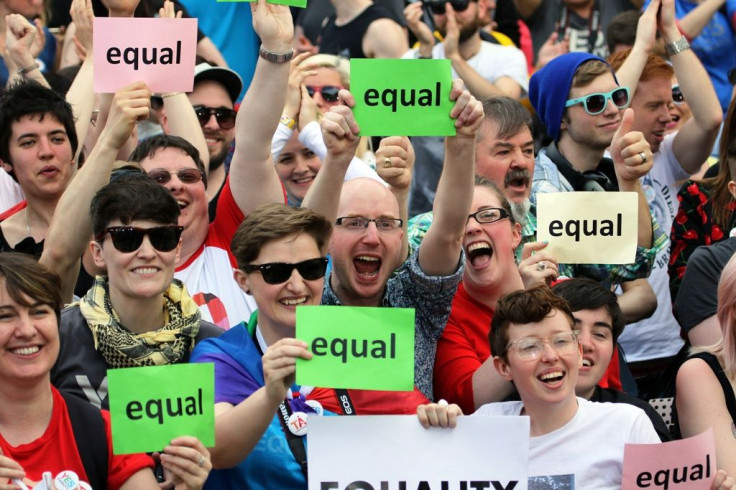Ireland Signs Gay Marriage Bill 2015 Into Law, First Same-Sex Marriage Ceremonies Expected In November

Ireland signed same-sex marriage into law Thursday, allowing homosexual couples who got married outside of Ireland to be recognized under the new law. The Catholic majority country signed the law five months after it voted to allow marriage rights to gays.
Ireland’s Presidential Commission, consisting of the Chief Justice, the chair of the House of Representatives and the chair of the Senate, approved the legislation on behalf of President Michael Higgins, who is on a U.S. visit, Agence France-Presse (AFP) reported. The president’s backing was the final obstacle for the bill after it was delayed following legal challenges.
First same-sex marriage ceremonies are expected to start mid-November, Justice Minister Frances Fitzgerald said, according to AFP.
“Just like 100-years ago a defining moment has been reached in our development as a nation and together we are sending out a message to the world that Ireland is a country where people continue to believe in equality for all,” Irish Senator Katherine Zappone said in a statement, according to the Irish Times. Zappone married her partner Ann Louise Gilligan in Canada, and said she hoped to renew her vows in Dublin next year.
Ireland became the first country to pass the law by popular vote after 62.1 percent of people supported gay marriage in a May referendum. However, following the referendum result, Cardinal Pietro Parolin criticized same-sex marriage legalization, calling it a “defeat for humanity.”
“I was deeply saddened by the result,” Parolin said at the time. “The church must take account of this reality, but in the sense that it must strengthen its commitment to evangelization. I think that you cannot just talk of a defeat for Christian principles, but of a defeat for humanity.”
© Copyright IBTimes 2024. All rights reserved.












